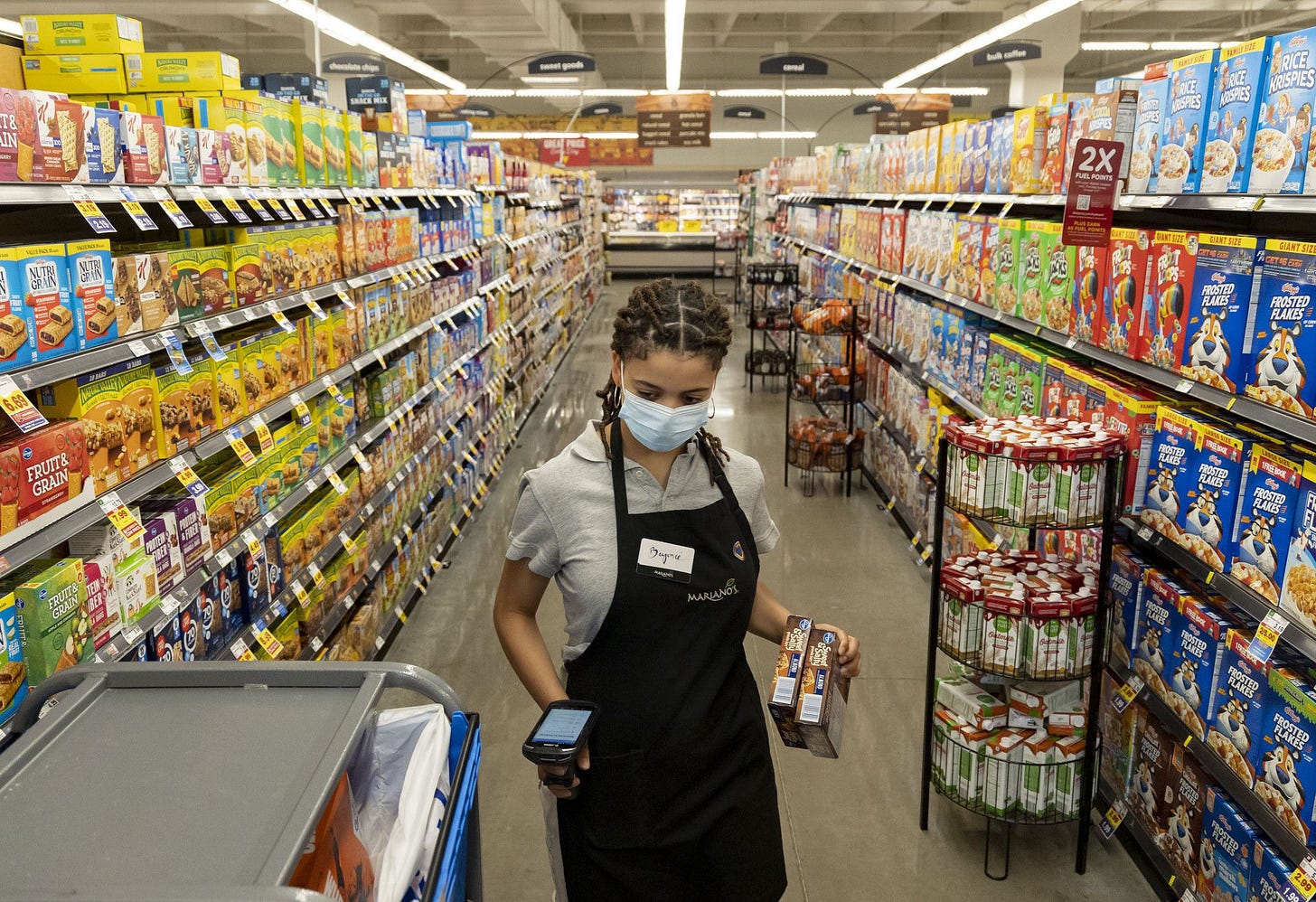This City Wants to Eliminate Food Deserts With a Municipally-Owned Grocery Store
Chicago could become the first major U.S. city with a city-owned supermarket.
By Paul Blest, More Perfect Union
The city of Chicago is working on a plan to irrigate the city’s food deserts by adding grocery stores to neighborhoods traditionally underserved by healthy, affordable food. What’s more notable is that the city may take on that role itself.
Mayor Brandon Johnson announced last week that Chicago would partner with the Economic Security Project, a national nonprofit that aims to “build economic power for all Americans,” to explore a path towards a municipally-owned grocery store in Chicago.
Johnson, a former social studies teacher and Chicago Teachers Union organizer who was elected to as mayor earlier this year, said in a statement that all residents of his city “deserve to live near convenient, affordable, healthy grocery options.”
“We know access to grocery stores is already a challenge for many residents, especially on the South and West sides,” Johnson said. “A better, stronger, safer future is one where our youth and our communities have access to the tools and resources they need to thrive.”
The process will start with a feasibility study of the project, and could eventually utilize funding sources like state grants, according to Johnson’s office. Last month, Illinois Gov. JB Pritzker signed legislation authorizing $20 million in funding to open and expand grocery stores in urban and rural areas that currently have low access to grocery stores.
Like many U.S. cities, Chicago has struggled with food deserts. In the Southside’s Riverdale neighborhood, for example, nearly every single resident — 99.85 percent, to be exact — lives more than a half-mile from the nearest grocery store, according to the Chicago Health Atlas. Last year, the Greater Chicago Food Depository, a Cook County nonprofit, identified 28 such “high priority food insecure” communities, according to Crain’s Chicago Business.
There are, unsurprisingly, also racial disparities when it comes to food insecurity. Thirty-seven percent of Black residents are food insecure, as are 29 percent of Latino residents, much higher than the citywide rate of 19 percent, according to numbers provided by Johnson’s office.
Grocery stores don’t just provide healthy food options, but also jobs — in some cases, union jobs. They can also serve as a key signifier of economic investment in a community, though much of this is based on the perception of a store’s quality, with brands like Whole Foods or Trader Joe’s marking areas as more desirable than those primarily served by dollar stores, according to a Brookings Institution report from earlier this year.
In Chicago, as elsewhere, private companies haven’t been able to fill the gaps. In Englewood, a Southside neighborhood where the crime rate is 125 percent higher than the city’s average, Whole Foods opened a much-hyped location in 2016, thanks in part to more than $20 million in city and federal support, but it closed the store last November with little warning to residents.
Anton Seals Jr., a community organizer in Englewood, said in a statement provided by Mayor Johnson’s office that the announcement “marks a pivotal moment to forge pathways for food accessibility, with the City recognizing its role as a key partner in addressing market shortcomings.”
Chicago would be by far the largest city to open a municipally-owned grocery store, but it wouldn’t be the first. Over the last decade, several small, rural municipalities — at least three in Kansas and Baldwin, Florida — have taken over the spaces formerly occupied by independent grocery stores to ensure continuity of service for residents, who tend to be older.
In May 2020, more than two-thirds of the residents of Erie, Kansas voted to support the town taking over its only grocery store in order to keep it running. After the takeover, the grocery store’s employees became city employees and began earning city benefits.
By kicking off the process to open a grocery store in Chicago’s similarly undeserved neighborhoods, Economic Security Project senior adviser Ameya Pawar said, Chicago is “reimagining the role government can play in our lives by exploring a public option for grocery stores via a municipally owned grocery store and market.”
“Not dissimilar from the way a library or the postal service operates, a public option offers economic choice and power to communities,” Pawar said. “A city-owned grocery store in the South or West side of Chicago would be a viable way to restore access to healthy food in areas that have suffered from historic and systemic disinvestment.”


I live in Atlantic City NJ which is a food desert. The city went over 8 years without any grocery store. Just last week the government board rejected all bids from traditional grocery a contract to run a grocery store. The project has been in planning stage (& never moves forward) for about 5 years. The idea of the city running it themselves would be great. I'm not confident that it would happen or succeed. Thanks for writing this article. People need to know more on this issue.
What a great idea! No one should live in a food desert.